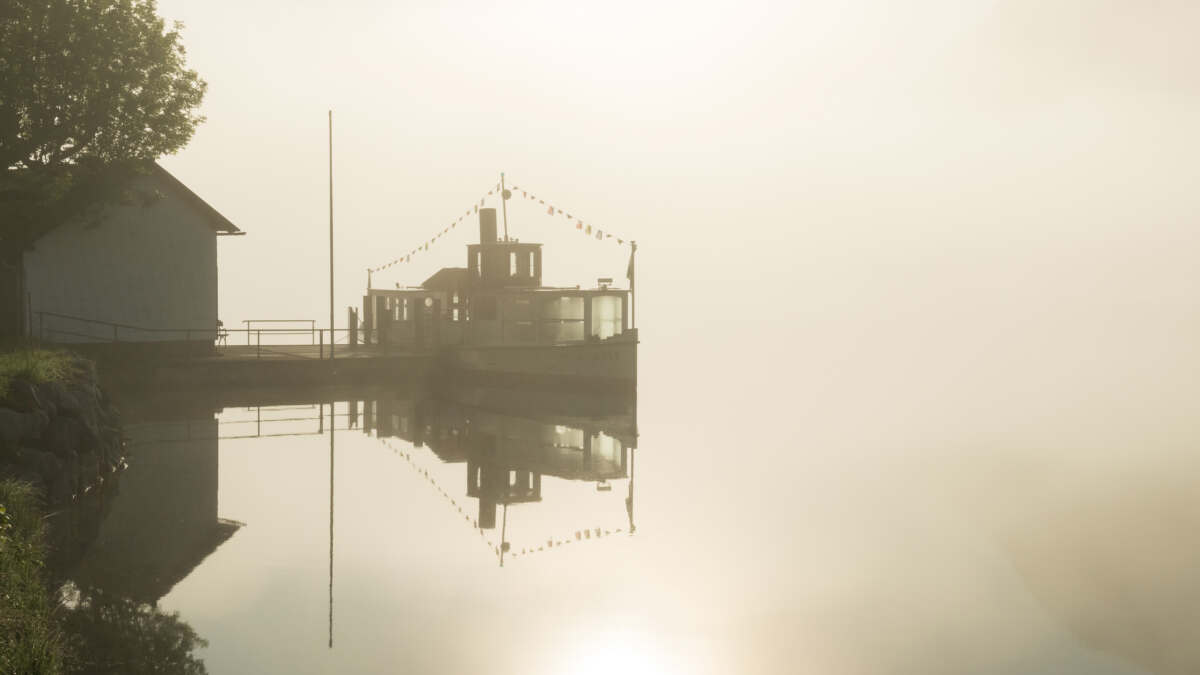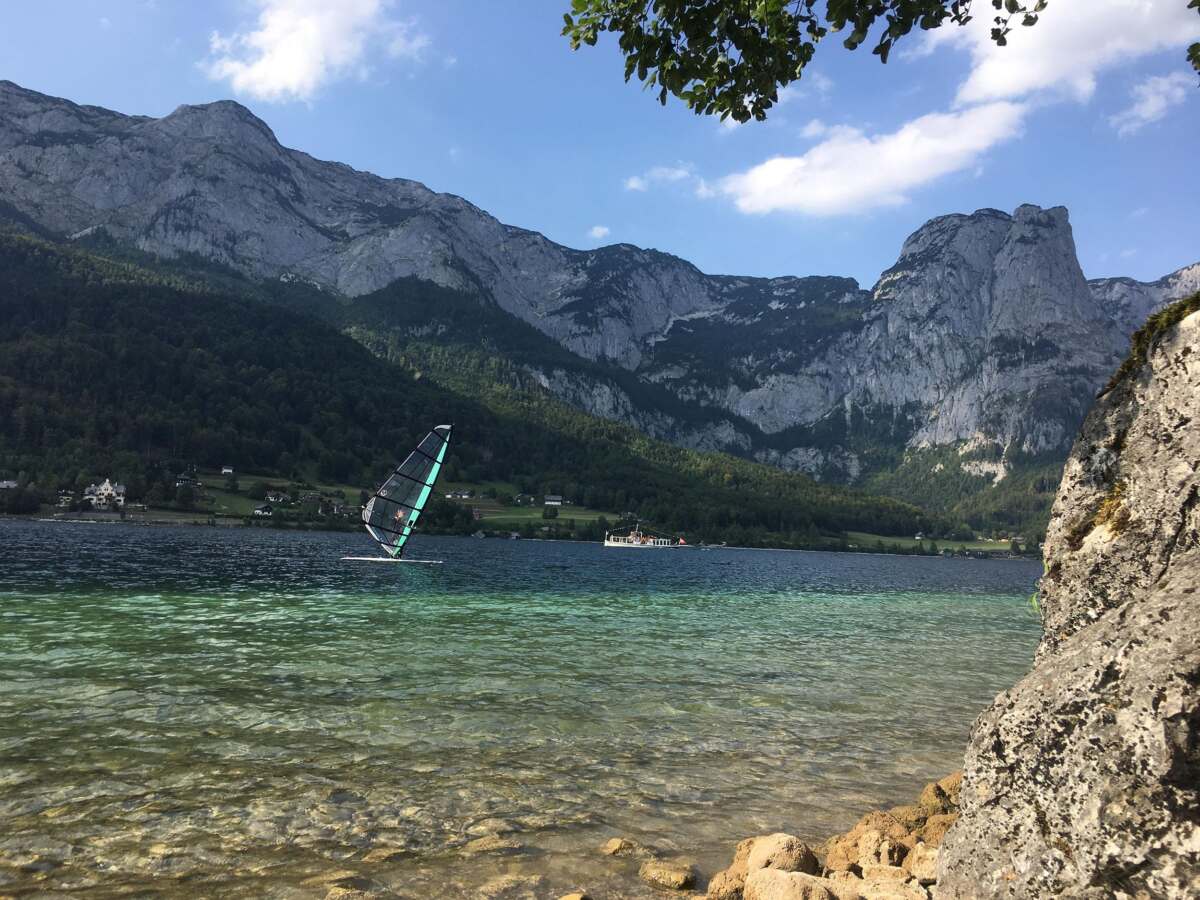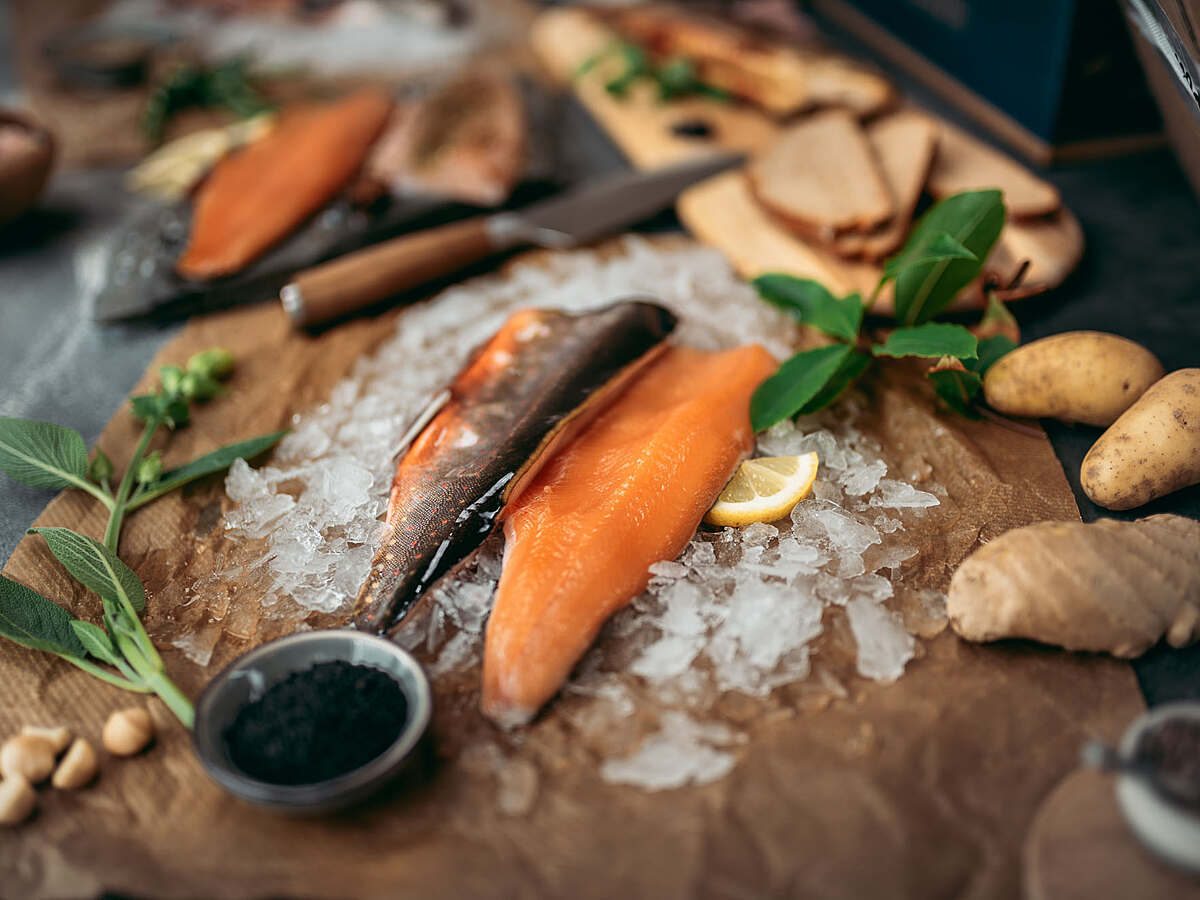
Lake Grundlsee the “Styrian Sea”
Lake Grundlsee is the largest lake in Styria and therefore earned it´s nickname as the "Styrian Sea". The captains of Schifffahrt Grundlsees’ fleet are therefore officially "sailors" and naturally have some exciting stories to tell. Embedded in an incredibly beautiful mountain scenery, Lake Grundlsee is situated at the south-western edge of the “Totes Gebirge” mountain range. It geographically belongs to the Styrian part of the Salzkammergut.

Magnetic in summers and winters
Summers at the lake lure a multitude of people to the freely accessible beaches and magnificent scenery. The lake attracts many guests who come to swim and relax. There are also many who utilise the lake for sailing, windsurfing, rowing and diving.
In winter it is a very different scene. Occasionally Lake Grundlsee freezes over which brings a plethora of children, ice skaters and curling enthusiasts onto Styrias largest ice rink.

Freshwater Fish
Lake Grundlsee is home to many species of fish including char and lake trout, which are highly favoured in the local restaurants.
Wild fish caught directly from the lake is a speciality in Styria that is only available seasonally and in limited quantities. It is of the highest priority to maintain high levels of sustainable wild fish stocks.
Every year in the autumn fishermen catch some of the wild lake fish, collect their eggs and release the fish back into the wild. These wild eggs are then nurtured by Fischerei Ausseerland, the local fishery, to cultivate fresh fish that can be purchased at local fish shops "Fischerläden des Ausseerlands" or online via FlossenBox.